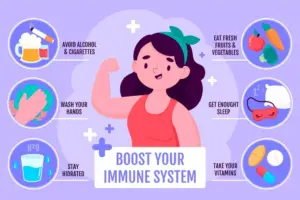An ulcer in your stomach or duodenum, the first part of your small intestine, is called a peptic ulcer. The most common symptom is burning stomach pain. The pain is as follows:
- Usually occurs between meals or at night
- An antacid or a meal can temporarily stop it
- Minutes to hours long
- Comes and goes over a period of time
In peptic ulcers, the acids that help digest food damage the stomach or duodenum walls. Stomach ulcers can be called as gastric ulcers too. Helicobacter pylori infection is the most common cause. Long-term use of nonsteroidal anti-inflammatory medicines (NSAIDs) such as aspirin and ibuprofen is another cause. Despite the fact that ulcers are not caused by stress or spicy foods, they can make them worse.
An H pylori infection will be detected by testing your blood, breath, or stool. Endoscopy and x-rays may also be used to examine your stomach and duodenum.
It is important to treat peptic ulcers as soon as possible. Treatment may consist of medications to reduce stomach acids or antibiotics to eradicate H. pylori. Peptic ulcers cannot be healed with antacids or milk. Smoking and drinking alcohol should be avoided. Surgical intervention may be necessary if your ulcers do not heal.
To discuss diagnosis and treatment options, please book an appointment with our specialist.
To learn more about peptic ulcers, please click on:
Dr Ibrahim Yahli MD MRCPsych



